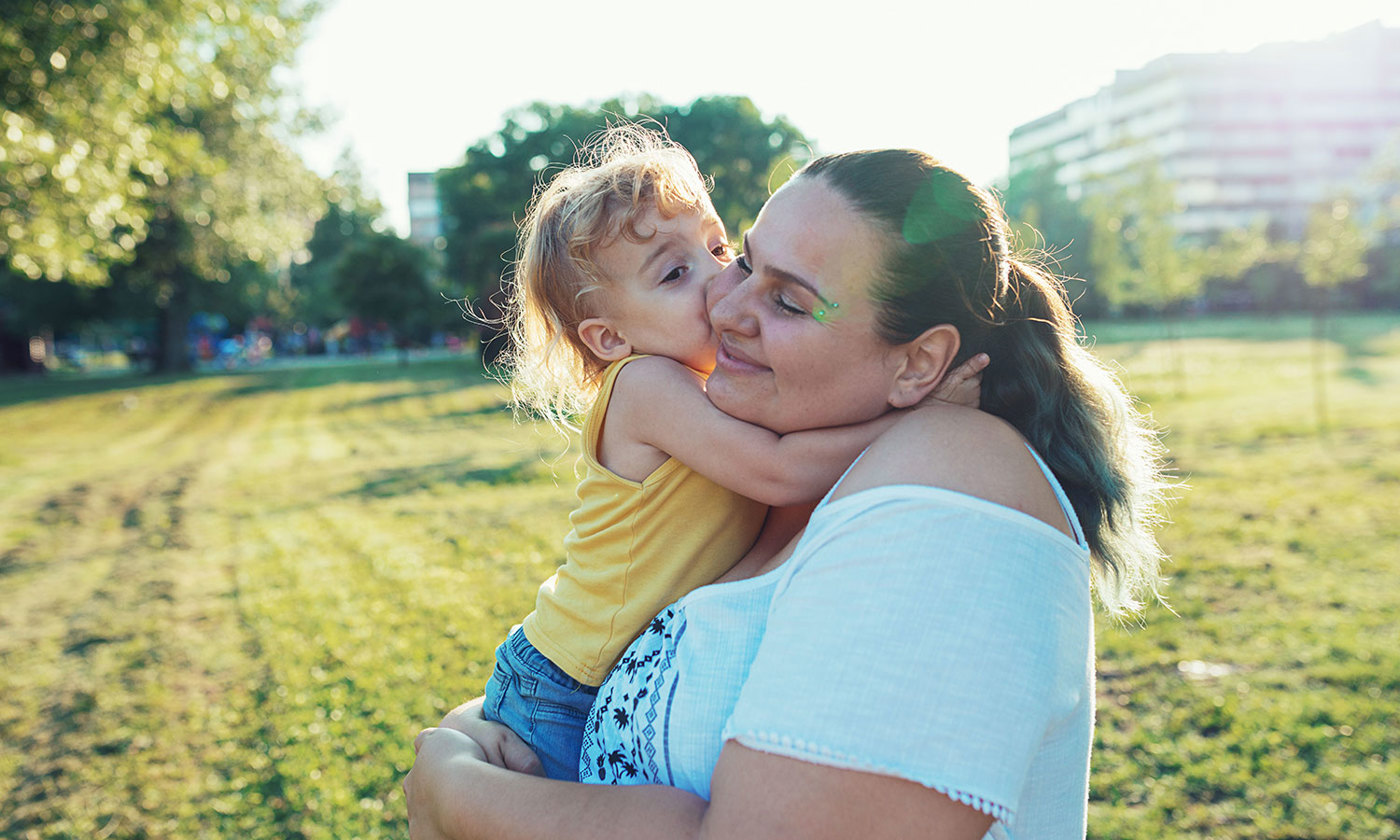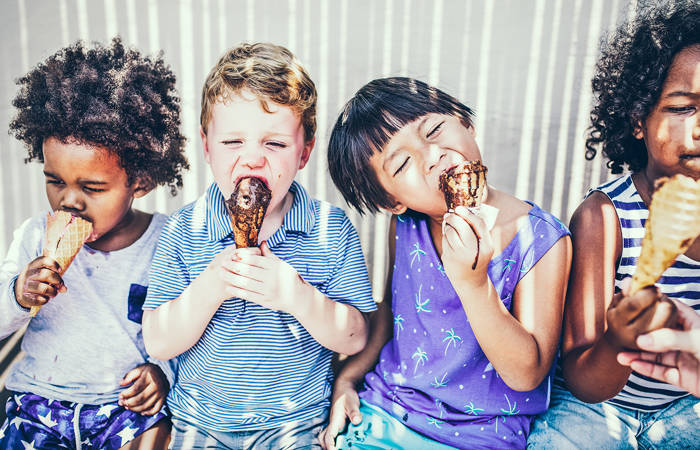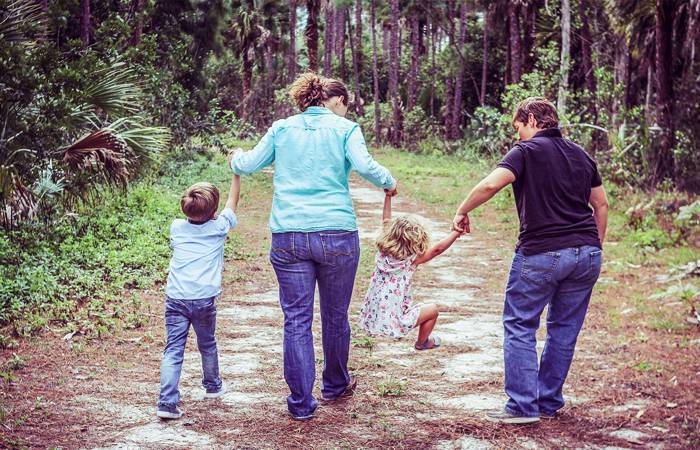Like what you see?
Sign up to receive more free parenting advice.
Thank you for subscribing to our newsletter!
Child Development

Credit: iStock.com/Drazen_
It’s easy to fall into the trap of letting your children believe that the bubble they live in is the same world as everybody else’s. Whether your children are growing up in a single parent home, a traditional nuclear family or with same-sex parents, foster parents or an adoptive family – Christmas is a great time to teach them about diverse families.
No one family looks entirely the same and, as extended families get together to celebrate the holiday season, it might be the first time some children become aware of the fact that families come in a variety of different shapes and sizes.
Clinical psychologist Dr Elizabeth Westrupp, Senior Lecturer in Psychology, Deakin University says children are quite quick to put people and families into “categories” in an attempt to help them to understand the world.
“Children go through quite a concrete stage which means things are very black and white. So, they tend to think in terms of ‘boys do these kind of things’ and ‘girls do those kinds of things’. Of course, not all kids are the same but in general, developmentally, they orientate towards things being quite concrete,” Dr Westrupp says.
“It’s good to keep that in mind because, unless kids are directly taught, they will make their own categorisations about people. And, because of that, kids will often make inappropriate comments.”
Children draw conclusions to simplify their world
According to Dr Westrupp, children will often come up with their own conclusions about people and families because they’re trying to simplify their world.
“They’re just trying to make sense of the people and the world around them and, similar to research around preventing racism, it all comes down to how you go about talking to your kids. So, it’s important to educate children around different families as well.
“Parents are advised to be very direct and have regular conversations with their children, and there’s nothing wrong with being blunt and quite explicit about the variety of families that they will come across.”
Dr Westrupp believes some parents are scared to talk to children about topics that society is sensitive about. However, children aren’t necessarily aware of what is likely to be perceived as a sensitive topic.
“Most kids aren’t sensitive to topics in the way some adults are. So the rule of thumb is that it’s all about how you pitch things to them. It’s completely fine to be really open and, when kids are curious and ask questions, you should do your very best to answer them.
“It’s a good idea to keep the conversation going. You can talk about how not all families are the same, and they can look different in different ways. You can also talk about the pros and cons of different families. And you shouldn’t have a problem talking about those issues.”
Most kids aren’t sensitive to topics in the way some adults are. So the rule of thumb is that it’s all about how you pitch things to them. It’s completely fine to be really open and, when kids are curious and ask questions, you should do your very best to answer them.Dr Elizabeth Westrupp
Stay up to date with the latest news and articles from First Five Years
Thank you for subscribing to our newsletter!
Understanding seasonal family get-togethers
During the Christmas holiday period, it’s likely children will be interacting with extended family members – some of whom might be from diverse families. It’s an ideal time to bring up conversations about “different kinds of families” that you might not have had before.
Another idea is to talk to children about how life can be very different for families, depending on their circumstances.
“The traditional way of dealing with kids’ questions is not to talk about them. In the past, we have falsely thought that not showing prejudice means that kids won’t show prejudice either. But we have to be quite firm and explicit so that kids will understand about diverse families.
“One thing families can do is read books together about different families – this is especially helpful if parents aren’t quite sure what to say. So, read books together, ask questions and keep the conversation going.”
Dr Westrupp says it’s all about being mindful and trying not to avoid “awkward questions” your child might ask from time to time. She suggests thinking ahead of time what you could tell your child when they ask you about a family situation that is different from their own.
“Think about what you might say, within what you find comfortable with your own values, beliefs and what you think is appropriate for the age of the child.”
Amanda's story
Amanda is a 38-year-old single mother living in Sydney. Her children, aged two and four, mostly spend time with other single parent families.
“My biggest support group is other single mothers so my kids mostly know single parent families. Christmas is usually the one day of the year that they see all their cousins and realise that not every family is a single parent family. I always chat to them about it, telling them that we are a special family because there isn’t a father on the scene – my former boyfriend has nothing to do with my kids. They seem to just accept it and don’t seem to be bothered at all,” Amanda says.
“I have had times when I’ve had to deal with my kids asking why other kids have a daddy and that wasn’t easy but I just reassured them that they have lots of uncles in their life. And, for some other families, the dad still lives with the mum and that’s okay but it’s not what our family is.
“I also have a close friend who is in a same-sex relationship. They recently had a baby and my kids know that this baby is very lucky because he has two mums! I always try to tell my kids that there are all sorts of families and that every family is as important as the other family. In my experience, I try not to over-explain things too much and my kids seem to just go with the flow.”






